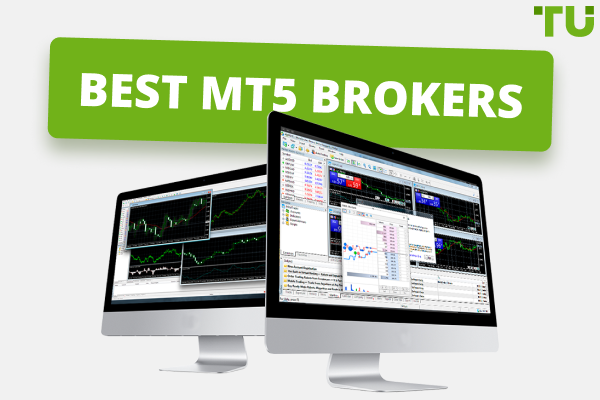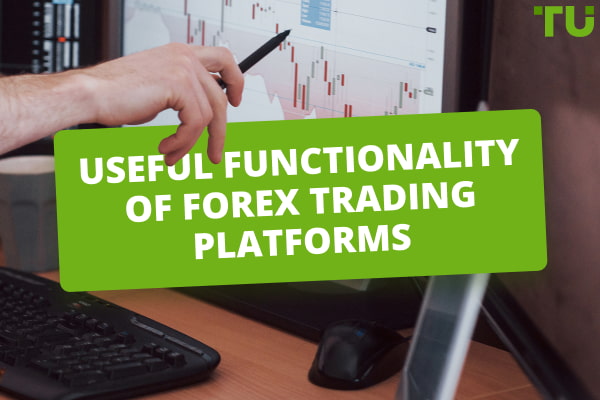What is the most profitable leverage for beginners?
While 5x leverage carries risk for both novices and seasoned traders, the nature of that risk varies. For experienced traders, it holds less risk due to their adeptness in comprehending market dynamics and implementing effective risk management tactics.
Leverage trading holds considerable sway in financial markets, offering the allure of magnified gains while necessitating careful consideration due to its proportional increase in risk. This discourse delves into the intricacies of leverage trading, dissecting its mechanisms, pitfalls, and potential rewards. This trading guide aims to equip readers with insight for a discerning and purposeful approach to leverage trading.
Want to trade Forex? Open an account with RoboForex!What is leverage trading?
Leverage trading, or margin trading, involves borrowing funds from a broker or exchange to amplify trading positions beyond the trader's own capital. Traders open a margin account, depositing a portion of their funds as collateral.
The leverage ratio determines how much they can borrow—e.g., a 10:1 ratio means $1,000 can control a $10,000 position. Profits and losses are magnified, as leverage multiplies gains and potential losses. However, losses can surpass the initial deposit, leading to a margin call, where the trader must deposit more funds to cover losses or risk position liquidation.
Leverage trading can yield substantial profits but also carries high risk. It's suitable for experienced traders who understand market behavior and risk management. Different markets and instruments have varying leverage options, requiring traders to grasp leverage's mechanics and employ protective measures like stop-loss orders.
Is 5x leverage safe or risky?
5x leverage can be risky for both beginners and experienced traders, albeit in different ways. For experienced traders, it's relatively safer due to their familiarity with market dynamics and risk management strategies. They can utilize the amplified exposure to potentially enhance profits within their calculated risk tolerance. However, even for them, unforeseen market fluctuations can result in substantial losses.
For beginners, 5x leverage can be challenging and risky. Novices often lack the market insight and risk management skills to navigate leverage effectively. Leverage increases the stakes, and losses can quickly surpass their initial deposit. In the event of a market downturn or unexpected volatility, they might struggle to control losses, leading to a significant setback or even account depletion.
In essence, while experienced traders might harness 5x leverage as a tool, beginners should approach it with extreme caution. Novice traders are better served by first gaining a solid understanding of trading fundamentals, risk management, and market behavior through lower leverage or even unleveraged trading.
Is 100x leverage worth it? Is 1: 500 too much?
100x leverage is an extremely high level of leverage that involves amplifying trading positions 100 times beyond your initial capital. While it can potentially yield substantial profits, it comes with extremely high risk and is generally not recommended for the majority of traders, whether they are beginners or experienced.
The allure of 100x leverage lies in the potential for massive gains on even small market movements. However, the flip side is that the potential for losses is equally magnified. Even a small adverse price movement can lead to complete account depletion, resulting in a total loss of the trader's capital.
A leverage ratio of 1:500 is considered extremely high. It’s usually offered only by high leverage CFD brokers. This level of leverage means that for every unit of your capital, you can control 500 units in the market.
Imagine you have $1,000 in your trading account, and you decide to use 500x leverage to open a position. With this leverage, you can control a position size of $500,000. Now, let's consider a simple scenario:
The current price of the asset you're trading is $100
You decide to go "long" (betting that the price will go up) with your entire $500,000 position
In this scenario, even a small price fluctuation can have a significant impact due to the high leverage:
If the price increases by just 0.2%, from $100 to $100.20, your position's value increases to $501,000
You've made a profit of $1,000 (0.2% of $500,000), which is a 100% return on your initial $1,000 capital
However, the reverse is also true:
If the price decreases by 0.2%, from $100 to $99.80, your position's value decreases to $499,000
You've now lost $1,000, which is your entire initial capital
What is the best trading leverage?
The optimal trading leverage varies based on factors like risk tolerance, experience, market volatility, strategy, capital size, and risk management. For beginners, starting with lower leverage (e.g., 1:2 or 1:5) is recommended to learn and manage risk. More experienced traders might use slightly higher leverage, but it should always be balanced with the potential for significant losses. Ultimately, choosing the right leverage involves a careful assessment of personal factors and a commitment to responsible risk management to ensure both potential gains and potential losses are kept within acceptable limits.
For beginners, it's generally advisable to either avoid leverage trading altogether or approach it with extreme caution after thoroughly learning about risk management. Starting without leverage allows beginners to focus on learning the basics of trading, understanding market trends, and practicing risk management techniques without the added complexity of leveraged positions.
If a beginner decides to experiment with leverage trading, they should prioritize learning about effective risk management practices like setting stop-loss orders, diversifying their portfolio, and determining the maximum acceptable loss on a trade. This helps prevent catastrophic losses that can easily occur when using leverage without caution.
FAQs
What does 5x leverage do?
With 5x leverage, a trader can control a position size five times larger than their own capital.
Is 50X leverage risky?
Yes, 50X leverage is inherently risky. While it has the potential to amplify gains, it also magnifies losses, making trades highly sensitive to market fluctuations. Such high leverage demands seasoned risk management and a deep understanding of the market.
What is the best leverage to use?
The best leverage varies based on individual risk tolerance, experience, and trading strategy. A common approach is to start with lower leverage (e.g., 1:2 or 1:10) for beginners and slightly higher for experienced traders.
What is the best leverage for a $10 forex account?
Trading forex with just $10 can be challenging due to the limited capital required to cover potential losses and manage positions. To trade a micro lot (1,000 units) with only $10, you would need a leverage ratio of at least 1:100 or higher.
Team that worked on the article
Andrey Mastykin is an experienced author, editor, and content strategist who has been with Traders Union since 2020. As an editor, he is meticulous about fact-checking and ensuring the accuracy of all information published on the Traders Union platform. Andrey focuses on educating readers about the potential rewards and risks involved in trading financial markets.
He firmly believes that passive investing is a more suitable strategy for most individuals. Andrey's conservative approach and focus on risk management resonate with many readers, making him a trusted source of financial information.
Dr. BJ Johnson is a PhD in English Language and an editor with over 15 years of experience. He earned his degree in English Language in the U.S and the UK. In 2020, Dr. Johnson joined the Traders Union team. Since then, he has created over 100 exclusive articles and edited over 300 articles of other authors.
Mirjan Hipolito is a journalist and news editor at Traders Union. She is an expert crypto writer with five years of experience in the financial markets. Her specialties are daily market news, price predictions, and Initial Coin Offerings (ICO).









